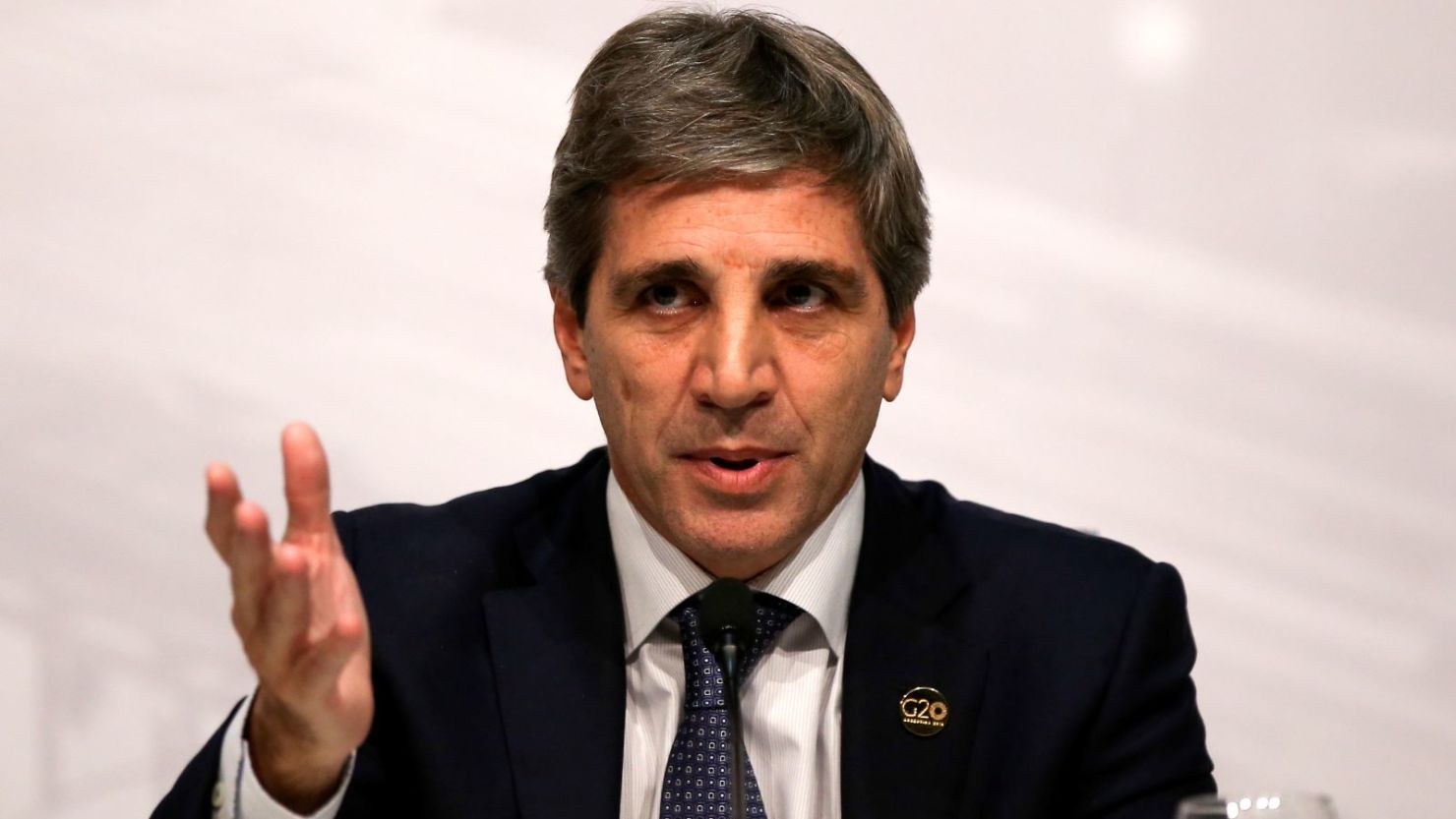
I accessed Chatpts here.
Luis “Toto” Caputo: a weight name in Argentine economic policy, but not precisely due to honorable merits. This economist and political, known for its proximity to speculative capital and its fundamental role in the government of Mauricio Macri between 2015 and 2019, has become a symbol of economic failure that marked that period in Argentine history. Now, as Minister of Economy in the government of Javier Milei, his background raises serious doubts about the country’s economic future.
A trajectory to the service of financial power
Caputo was born in Buenos Aires in 1965 and is a cousin of Nicolás Caputo, a businessman closely linked to Mauricio Macri. He studied economics at the University of Buenos Aires and served in the international financial world before entering politics. He was head of Training for Latin America in JP Morgan Chase and occupied similar roles in Deutsche Bank, in addition to being director of Edenor and a member of the multilateral investment guarantee agency of the World Bank. His career in the private sector reflects his deep connection with speculative capital, a relationship that would mark his public management.
In December 2015, he assumed as Secretary of Finance in the Government of Mauricio Macri. From this position, Caputo led the negotiation with the Vulture funds, the creditors who had not accepted the debt exchanges of 2005 and 2010. Argentina agreed to pay 9352 million dollars, an exorbitant figure that was presented as a solution to the technical default, but that mortgaged public finances at a high cost.
Mass indebtedness and failure of the Macri plan
In his role as Minister of Finance since 2017, Caputo supervised an external debt record. In just two years, Argentina became the largest international debt issuer between 2016 and 2018. Among the most controversial measures of its management, the “Centennial Bonus” stands out, a 100 -year title issued with an interest rate of 7.9 %. These financial decisions, far from stabilizing the economy, increased the country’s fiscal vulnerability and sowed the bases for an unprecedented economic crisis.
In 2018, Caputo assumed the presidency of the Central Bank in a context of exchange crisis and loss of international reserves. Despite implementing measures to reduce the liabilities of the Central Bank, its management was short and marked by a strong devaluation of the weight and an increase in country risk, factors that aggravated the economic recession. His resignation in September of that year was a reflection of the collapse of the macro economic strategy.
The economic policy designed by Caputo and Mauricio Macri’s team was based on external indebtedness as a growth engine. However, this strategy failed flatly. Between 2015 and 2018, public debt shot, inflation did not yield and economic growth was negative. In 2018, an exchange crisis highlighted the unsustainability of the model, leading to the government to seek an agreement with the International Monetary Fund (IMF) that only deepened the country’s financial agency.
Controversies and links with speculative capital
Caputo is no stranger to controversies. He was mentioned in the “Paradise Papers” for his link with offshore societies and faced complaints for alleged irregularities in the management of funds of the ANSES. Although it was dismissed in several of these causes, the accusations have fed criticisms about their management and their relationship with speculative capital.
From the daily left, we have repeatedly denounced the role of Caputo as a representative of international financial interests, prioritizing the profit of speculative sectors over the needs of the working people. His management not only left a indebted country, but deepened the inequality and precariousness of the lives of millions of people.
Caputo’s return in the Milei government
In 2023, Caputo returned to the public function as Minister of Economy in the government of Javier Milei. His first measures have followed the fiscal adjustment line and economic reforms that characterized their time with Macri. This makes a reissue of policies that benefit the great capitals to the detriment of the population, as in fact it has been happening and threatens to deepen with a new agreement with the IMF.
Luis Caputo’s trajectory is a testimony of the negative impact that indebtedness and adjustment policies have on the economy and society. His role as an architect of the economic failure of macrismo is undeniable. As a working people, we must fight for an economy that prioritizes our needs and not the interests of a few privileged. It is time to learn from the mistakes of the past and fight for a future where wealth is at the service of those who produce it, not from those who speculate it.
****
And you, what would you ask Chatpts? I accessed here and ask your questions. You can also inquire about thousands of more topics of history, theory or politics.
Source: www.laizquierdadiario.com

